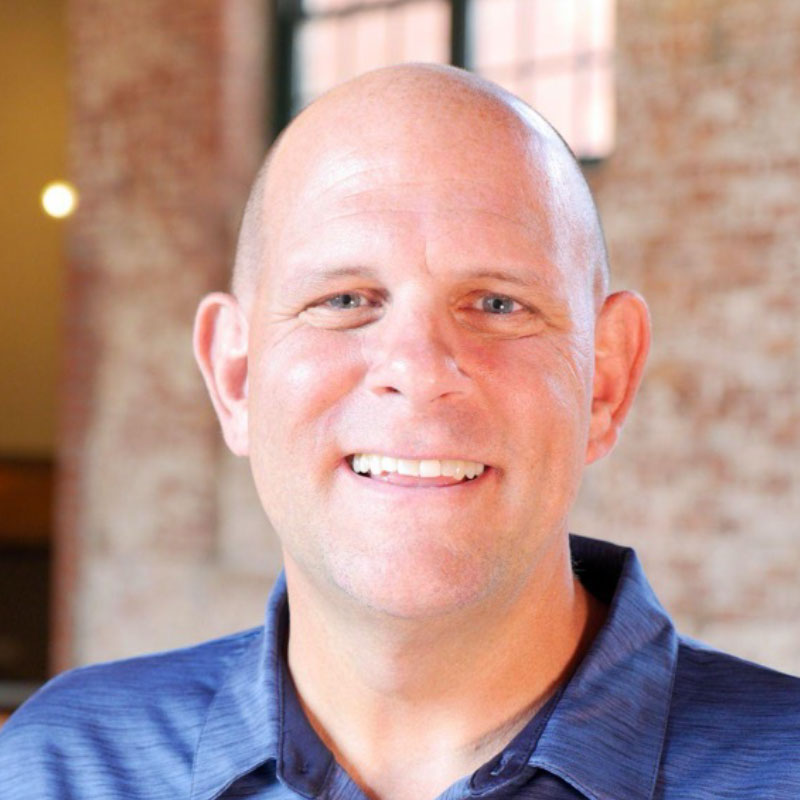#90
Share This:

It’s Medicare busy season - and smart decisions now can save you thousands.
In this episode, Matt Feret sits down with Bob O’Connor, a 20-year Medicare veteran who once ran one of the nation’s largest Medicare Advantage markets. Together they explain the biggest questions people have during the Annual Election Period (AEP):
- Should you choose Medicare Advantage or a Medigap (Medicare Supplement) plan?
- Do Medicare star ratings actually matter - or are they just marketing?
- What does it mean that prior authorization is being tested in Original Medicare?
- What happens if your Medicare Advantage plan is discontinued in 2026?
- How can you avoid common mistakes with drug formularies, provider networks, and out-of-pocket costs?
This conversation pulls back the curtain on how plans are really designed and gives you a practical framework to compare options. If you or a loved one are turning 65—or reviewing coverage during the Annual Election Period—this episode will help you make confident Medicare choices.
Need personalized help? Visit PrepareforMedicare.com to learn more, or schedule a free consultation at BrickhouseAgency.com. No obligation to enroll.
Listen to the episode on Apple Podcasts, Spotify, Deezer, Podcast Addict, Stitcher, Google Podcasts, Amazon Music, Alexa Flash Briefing, iHeart, Acast or on your favorite podcast platform. You can watch the interview on YouTube here.
Brought to you by Prepare for Medicare – The Insider’s Guide book series. Sign up for the Prepare for Medicare Newsletter, an exclusive subscription-only newsletter that delivers the inside scoop to help you stay up-to-date with your Medicare insurance coverage, highlight Medicare news you can use, and reminders for important dates throughout the year. When you sign up, you’ll immediately gain access to seven FREE Medicare checklists.
Quotes:
“Star ratings don’t tell the whole story. If a plan is below 4 stars in a market full of 4-plus options, benefits can get squeezed.” – Bob O’Connor
“Millions could lose coverage due to service-area reductions. Doing nothing is the worst option—know your Special Enrollment rights.” – Bob O’Connor
“People often chase extras, but the bigger question is: how stable is this insurer over time?” – Bob O’Connor
#90
Selected Link from the Episode:
All Things Medicare: PrepareforMedicare.com
- Decoding Social Security: PrepareforSocialSecurity.com
- My Written Works on Amazon: amazon.com/stores/Matt-Feret/author/B09FM3L4WW
- The Matt Feret Show YouTube: youtube.com/@themattferetshow
- Network with me on LinkedIn: http://www.linkedin.com/in/mattferet
- Follow on X: x.com/feret_matt
- Instagram: instagram.com/matt_feret/
- Facebook: facebook.com/themattferetshow/
Full Show Transcript:
Matt Feret (02:03)
After a brief summer hiatus, The Matt Ferret Show is back. Hey everybody. My guest today is Bob O'Connor. Bob and I go back to our days at Aetna Medicare, where one of his jobs was running one of their biggest Medicare markets. He's got a really unique perspective on how Medicare plans get built and how they get delivered. And I thought he'd be a great guest to bring on as we head into the Medicare busy season. Bob, it's good to see you. Welcome to the show.
Bob O'Connor (02:31)
Good to see you, Matt. It's been a while. Always ⁓ enjoyed working and interacting with you. Always a good time.
Matt Feret (02:34)
It has.
Yep, same,
same. Well, to start us off, let's let's start tell everybody what you do, how long you've been doing it and how you help people.
Bob O'Connor (02:45)
Yeah, yeah, sure. So I was, I've been in the industry for about 20 years with a couple different companies, including a local blue cross plan and a national player, one that we worked with together, Aetna. And I've had a chance to work almost all aspects of Medicare and specifically Medicare Advantage and kind of seeing behind the curtain and oftentimes being the guy behind the curtain, putting together the programs. And also worked in some other industries where I've...
Developed and merchandised and help people provide products to older Americans and so I've got some different thoughts and different perspectives on that on what's important What's not and what I've been doing lately is I've been helping out companies within the industry connect with insurance companies there's a lot of great ideas and the health tech and medtech space and So many different choices to sort through and so I ⁓ I help people on both sides figure out what's right and how they can better help the help the members
Matt Feret (03:41)
From where you sit, ⁓ what's the one thing about Medicare plans that consumers don't see but absolutely shapes their experience?
Bob O'Connor (03:53)
So I think there's a couple things. One of them is that there are so many, when you look at a plan on face value and you think about a product and we purchase a lot of products as consumers, whether it be cars or auto insurance or a house or whatever, but the complexity behind Medicare in particular can be really ⁓ confusing for people and a little daunting. And so I do sometimes see people, I wouldn't say make mistakes because the good news is you can.
redo it and try again the next year. But they certainly do some things that are suboptimal and don't work out for them. And so I think the biggest thing is like the lack of understanding of the complexity. And I think also some, the other piece that people understand is all the forces that are going into the products that they see and the pricing that they see, whether it be funding from the government, what's going on with providers, and what's going on with the greater healthcare ecosystem in our country.
Matt Feret (04:48)
So talk about that a little bit because I don't think really most people get that piece. So you've got a unique ⁓ experience. ⁓ You know, I talk a lot about the three ways to consume Medicare, right? One I call bear with Medicare, which is Medicare at parts A, part B, original Medicare, then add a part D. And then the second version is that, but add a Medigap or Medicare supplement plan on it. And then the third way is an MAPD or Medicare Advantage plan with a prescription drug card.
They're not the same things. And I think people really confuse and the number one question they always have is which one should I do version two, Medigap plus a Part D or version three Medicare Advantage. They're very different things and they operate very differently. You mentioned one has a lot of federal government intervention and pricing and negotiations and contracts and reimbursements. And then the other one is really state based and doesn't get reimbursed from the federal government at all. What's the interplay from where you sit between those?
to and where things have been and where they're going.
Bob O'Connor (05:50)
Well, I think the important thing with option B is the federal government and Medicare is still your partner in this because the Medigap product isn't covering 100 % of the person's care. It's actually wrapping around traditional Medicare. And so I think it's always the underlying funding from the government that is driving a lot of that. ⁓ In the case of the Medigap programs, they are...
standardized nationally and so while they are governed by state filings, they're pretty standard nationally and again, you know somewhat regulated by the government but not as closely as the plan C the Medicare Advantage plans are but you know if the Medicare trust fund is struggling then you know the program will change the funding will change. ⁓ One of the interesting things I think you remember earlier in the year there was a lot of discussion about prior auth kind of a little bit of a nerdy topic.
Matt Feret (06:44)
Mm-hmm.
Bob O'Connor (06:45)
guessing we'll get to it later. And so if you think about a Medicare supplement, and I know we'll dive deeper on them, but just at a very high level, it's traditionally with a Medicare supplement, it's like, hey, I'm not gonna be paying, I'm gonna pay my money as a premium, I'm not gonna pay as I go, I don't have to worry about co-pays and things like that, and I can go whatever doctor I want, and I'm not gonna have somebody telling my doctor what to do. And while that's still all directionally true with Medicare supplement, like,
now there's a little bit of an asterisk on it. know, on one hand, a lot of the newer Medicare supplement plans ⁓ have cost sharing on them, whereas some of the older ones didn't. And then the other thing, and this is almost mind blowing, is to me at least, is the government is actually doing a test in six states this next year to add prior off to traditional Medicare. I mean, like that's really interesting. ⁓ And a big game changer. And you know, six states, and I'm sure it's gonna be like,
Super light touch, not a big deal, hardly noticeable other than to the folks in your doctor's office, so I'm sure they'll find it annoying. like, is this the start of a trend? Is this something new? And, you know how this stuff starts. It starts little, it's a pilot, it's a test. And if it works out, it'll be the new normal. And then, you know, it really brings together like, and makes, as does tend to happen over time, the products and the choices more similar than different.
And I think that's true. know, I think about Medicare Advantage five years ago, 10 years ago, and there were like drastic differences in Medicare Advantage plans, drastic differences in what benefits they offered, drastic differences in network. you know, over time, and I do think like we're going into the cycle where it's going to flip again and things will start to differentiate more. But if you looked at the products the last three years and a lot of metros in this country, like they're awfully the same.
Matt Feret (08:36)
Yeah.
They are that prior off piece. And then I know we're nerding out a little bit for the audience, but prior authorizations are what happens in managed care. One of many things that happens in managed care, which is your doctor orders something and the insurance company says, Whoa, wait a minute. And then this is a silly example, but I still use it all the time. You have a pain in your shoulder and the doctor authorizes an MRI and the insurance company goes, Whoa, hold on a second. Did they do physical therapy and did they get an x-ray first, you know, cheaper?
tried those things before ordering a multi-thousand dollar MRI. And now that tends to annoy doctors and it tends to annoy patients, but that's some sort of cost control built into the system. And traditionally, original Medicare parts A and B have never done this. And that was one of the benefits of buying a Medigap or a Medicare supplement policy, which is...
you know, if Medicare pays it, the supplement pays it. Well, that pilot is now starting something new, which is no actually Medicare themselves are starting to go wait a minute, we need some prior authorization rules in original Medicare and and you follow the same news that I do, I'm sure. I mean, the Wall Street Journal and others have been all over companies in the last 2436 months about their their, yeah, their their their really tough and stringent prior authorization rules and hammering them.
Bob O'Connor (09:50)
Big news.
Matt Feret (09:58)
frankly, ⁓ and now the federal government's doing it themselves. So it's really interesting how this is going to play out to keep those health care costs down and what the feds do and what companies are allowed to do. I guess in between, all from the consumer standpoint, we'll all see how it impacts us. ⁓
Bob O'Connor (10:15)
Right, right. But how crazy is that?
I mean, at the same time that the government is calling out the insurance companies for prior auth, they're rolling it out. So does that mean it's good, it's bad? And I guess it matters on your perspective. And it's so funny the example that you gave, Matt, because one of the things that just sticks in my head, and this is probably, gosh, like 10, 12 years ago.
And I won't forget it. I was at a member meeting and it was like in State College, Pennsylvania. And guy comes up to me after the meeting and he goes, you blankety blanks, like you're the worst ever. ⁓
I'm like, ⁓ sir, gosh, you what's going on? ⁓ you blanks wouldn't authorize my MRI. And my doctor said I needed it. And you people said, no, you should go get physical therapy before you get your MRI. And I'm like, ⁓ okay. And then, and I'm thinking like, ⁓ where's this going, right? And he goes, well, I went to physical therapy and like, was such an inconvenience. Like I went for weeks. And I'm like,
Matt Feret (11:08)
Right.
Bob O'Connor (11:17)
Well, and then, you know, like, how's your shoulder? Okay. Like, did you get that MRI? Did you get that operation? He goes, no, my shoulder's fine. And so like, ⁓ validation, like validation, like the system actually can work.
Matt Feret (11:26)
Yeah
Yeah.</p>
The system could work. It's an inconvenience versus, you know, cost, right? I mean, if they don't have to pay for it, I guess I want it now too.
Bob O'Connor (11:43)
Well, but physical therapy,
mean, it's, that's the funny thing, Matt. mean, so physical therapy, I don't know if you've seen what that costs in terms of your copays. My wife goes, used to go a lot and it's so expensive when you go three or four times a week. ⁓
it probably would have been cheaper to cover that MRI. So it wasn't about money. It was more about like you get on that path where you get the MRI and the doc goes well, you've got a problem and we can try drugs or we can try physical therapy or we can schedule a surgery. We can get you in next week. And oftentimes people want like the fast results. And so they go with like, well, surgery is definitive. Like it'll take care of me. And like we've all had friends where, you you get cut and ends badly.
Matt Feret (12:28)
Yeah. Side note, I've never met a friend that had had back surgery that went well. Have you? There's always some problem. All right, so every fall, right, this is going to be released in early October, every fall, people are just bombarded with ads and mailers. And look, in my corporate career, I've been the one sending them out. Maybe you have to. But from your perspective, what
Bob O'Connor (12:34)
Right, there's always some problem. ⁓
<p>Matt Feret (12:54)<br />actually matters when comparing plans and what's just noise?
Bob O'Connor (12:59)
So I think that, I think people need to look at
the whole package of what's being offered. And so a lot of it is, they fall into some very basic categories because there is a tendency to shop on the benefits, right? You know, this plan has $2,000 of down on my current plan, current plan has 1,000, like.
That must be twice as good. If a thousand is good, two thousand is twice as good. But you really have to look at the details around like what is actually covered. What is you know, is it just the cleanings that are covered or is it going to cover your root canal? Another good example is what's the network? ⁓ If your doctor is in the network, doesn't really matter what the copay is. You know, if the hospital that's in the network is in the hospital that you or your family would want to go to, like does it really matter what the copay is when you go?
there if you don't want to be there if you don't trust the health care that you're getting and so I really think that the biggest thing is looking beneath the surface and then you know a lot of that is also around people oftentimes ⁓ disregard drug coverage as something that's not that important especially if they're not that on that many medications but with all the new therapies coming out all the new medications coming out some of those things are on the formulary of your current plan some of them might not be
is your pharmacy in the network.
And so really it's about understanding your needs. And if you think that you need help with that, then you should probably ask for help.
Matt Feret (14:30)
Makes sense. So you talked about, you know, products and, and, you know, cost benefit analysis, comparing and digging into the details. So what's the most common mistake you've seen people make when choosing a Medicare plan and what usually causes it?
Bob O'Connor (14:49)
So I think it falls into a couple of categories. One of them is not understanding what's actually going on with their pharmacy program, particularly a formulary drug, because you can take the same medication with three different insurance companies and you might have one company that covers it at no cost, another one that might have it at tier three for $47, and then the third one where it's not covered at all.
And so that could be a really big deal, particularly if you think about how people are using more and more medications these days. I think the second category is that people don't think about what's the most likely...
Medical utilization that they're gonna have you know when I when people ask me for help and a little bit of advice You know I talked to them a lot well You know in the last three four years like what was the worst? Year that you had in terms of what happened with your health and people will say well I had an operation three years ago, and well were you in the hospital well?
No, they did it outpatient. okay. And how many medications are you on? Well, I'm on these three and well, they're all zero dollars with like all three companies that I'm considering. How many times do you go to doctor? Well, ⁓ I go to one specialist, I go to the PCP three times a year. And so like you think about that and it sounds like somebody has...
you know, maybe some health issues with all of those things that happen. But in reality, like the actual out of pocket costs and most Medicare advantage options that they would look at is minimal. And so a lot of times people say, well, I need the most expensive program. need the program that has the biggest network. need the program that has, you know, the best coverage and they're paying premium for things that they aren't going to use, you know, or conversely, they're, you know, chasing after ⁓ things that have low medical co-pays.
and giving up on some of those extra benefits that they could qualify for. ⁓ So it's really about understanding what is actually most likely going to happen to you next year. And if things go worse than expected, how bad could it be? Because chances are, financially, it's not going to be that bad. And making a conscious decision to self-insure on a little bit of your potential health care needs versus spending money up front for things that...
<p>have never happened before, ⁓ I think is where people need to take the balance.
Matt Feret (17:19)
that vein, do star ratings on Medicare Advantage plans really matter, or is it more marketing than meaning?
Bob O'Connor (17:29)
I would say it's more meaning than marketing, actually. There's quite a bit to it. ⁓ And the interesting thing, and again, this kind of goes to a lot of what goes on underneath the surface with Medicare, is the stars rating are different measures that the federal government has chosen to designate as measures of quality. And you could think of it on a very superficial level, simply as a good housekeeping seal of approval, but it's...
little old school there, but it's actually lot more than that. And to some extent, it's the federal government manipulating the system to push it in the direction that they want. But at the same time, everything that's in there is real life healthcare. It's things that matter to you and things that you hopefully are thinking about and if you're not, you ought to be. And so they really fall into some broader categories. One of those categories might be around
Screening measures and so what percentage of people got their colonoscopy what people a percent of people got their mammogram got their flu shot Whatever and so think about how you can ⁓ Move the system by saying well We're going to measure insurance companies for flu shots or we're not going to measure Insurance companies for flu shots because that's going to change like things that you then see from your insurance company It's going to change things that you see from your pharmacy. You know right now you might see ⁓
pharmacies and companies like offering gift cards if you come and get your flu shot. Well, the flu shot isn't part of stars. You're not going to see those gift cards anymore. There's some operational measures things like how claims are handled, how quickly appeals are handled, how quickly the company answers the phone, whether you can get a foreign language line in an expedient fashion, and then some of the more interesting ones and they were weighted really heavily a couple of years ago, but less so now would be survey measures. And so those fall into
Matt Feret (19:24)
/>Mm-hmm.
Bob O'Connor (19:25)
couple categories. ⁓ One of them is just a pure member survey and so it'll ask you about, how do you feel about the quality of your insurance company? How do you feel about the quality of your physician? And surveys are really funny because, you know, you catch me, you know, grumpy. Maybe you're going to get like a different survey outcome than if you catch me when I'm happy. And I think everybody is the same thing. And then there's other surveys where it's a longer term survey where the ⁓
government.
surveys the same person over a period of time and asks them about changes of their physical and their mental health and whether or not their physician is asking about their exercise program and everything else and and that's kind of a funny thing too because You know, how's your mental health Matt? ⁓ Is it better than it was two years ago? I don't know about mine. Like I don't know that is getting better, right? So it's just a it's a it's a funny thing to hold an insurance company responsible for but it's also a good thing because you know, why do Why does Medicare Advantage exist?
Matt Feret (20:16)
You
Bob O'Connor (20:27)
exists to make health care better for the Medicare beneficiaries in this country if it's just
collecting premium and offering services like what's the real value and so you might say well that's all good and I care about my health and I'm glad that the government is holding the company's response for that. What does that mean to me financially? And that's a big answer actually Matt because the government then takes these scores and applies it to the funding that the companies receive and I don't want to nerd out too much but as you see companies move from three to three and half four to four and a half stars
there's actually changes in some of the dynamics, some of the financing of the bidding that they do with the government. And so a higher star plan can have more value to put into their program and to grow their program. And conversely, a plan that has poor stars rating receives less money. The biggest threshold difference, and this is an important point, Matt, this is something else that people wanna look at, especially on renewal, is that a health plan receives a five-thousand
5
% revenue bonus as they move from three and a half to four stars and there are some markets in this country where most of the plans are four or higher stars Where if you have three and a half stars you're not going to have a valuable enough product that people would want to buy it and so You know if a plan Maybe slips to three and a half stars for like one year. Maybe they can ride that out but if you see your plan being below four stars consistently and there's
other plans that are higher, you really ought to take a look at that because it's only a matter of time before they have to scale back your benefits or scale back in some other way.
And then the other thing that's interesting, ⁓ and this goes back to the comment about it being a seal of approval, is if the stars, and there's not a lot of plans that fall into these two categories, but if the plan receives a very low score, then ⁓ a two and a half or lower score, they'll actually get a little warning symbol put on their plan on the CMS plan finder, kind of like a warning label on your plan. That's kind of a funny and scary thing. And conversely,
Matt Feret (22:41)
Yeah,
⁓ I call that the flat tire indicator. It shows up on your dash. That's what it looks like. Yeah, yeah.
Bob O'Connor (22:45)
It looks a lot like that the little red triangle, right? ⁓
So it's and then on the other end of the spectrum if you're a five-star plan you can actually enroll people year-round and so it not only not only do you get the bragging rights in your marketing to say hey five-star plan only five-star plan and whatever, know Southern California or whatever, but you also get to enroll people year-round and and that's kind of a very special thing if you're in the marketing business
Matt Feret (23:15)
It is. I'm going to ask a couple of questions and you're going to think I'm pushing back, but I'm just looking at it from the consumer standpoint. again, you and I have both been in various rooms where we've had to deal with the stars and ratings and everything else. And we know a couple of things. Well, I know a couple of things to be true. Correct me if I'm wrong. The data is two years old. So what you're seeing largely, you know, if you get a star rating of four this fall and that's what the plan is that data is two years old. You don't know how it's going then.
first point. So it's not even real data that you can make an actual an actual decision on for the plan ahead, which will be the end of the third year by the time you're done with it. This data is two years old, things could have changed. The second piece from the consumer standpoint is also that
the federal government changes the goal posts literally every year. And so you don't get this, you know, 10 questions, did they do well? Did they do not do well? And then you get a rating, they change how they weight these ratings every single year. So by the time a health plan figures out how to get more people to get their flu shot, whoops, that rating changed. Now we're worried about something else. So from a consumer standpoint,
I understand that the plan gets more money if they have a higher star rating and some of that has to go back in the form of either lower premiums or better benefits. is it really something that a consumer can look at and trust and go 3.5 is not as good as 4.5?
Bob O'Connor (24:49)
Well, I can debate you on those, Matt. Though I will say, I will say, to a point that I made before, it's not necessarily the most important thing. Because if the plan is five stars but doesn't cover your physician, doesn't cover your hospital, that five stars is gonna taste really bad. And the other thing is if the benefits don't meet your needs, if the program itself doesn't meet your needs, same thing. Five stars only matters if the other components fall into place too.
Matt Feret (24:51)
Yeah, go for it.
Bob O'Connor (25:18)
In terms of the timeliness, that's a fair point, but everything lags keep in mind. And so, you know, and again, to go like further behind the curtain, if you think about how these programs get priced, the program that you're about to see on October 1st was finalized in May, and it was mostly based on data from 2024.
So the pricing date is two years old too. And so, because that's the completed year that they had to actually know whether the claims matched with what the revenue that they're getting or not. so that's, um, and the other thing I would say is that while these programs, certainly in terms of the benefits change, companies don't change that fast. If it's a good company that thinks customer service is important, like that's not going to massively flip year over year. If it's a company that thinks particular
of healthcare are important. Yeah, medical directors come and go, but largely you're not gonna see huge differences in a one-year period anyway. Things tend to run ⁓ on a trend line. I'd like to think about Medicare Advantage in particular, and I think also Medicare Supplement is as fairly linear. You can predict what's gonna happen unless the variables change. You can predict what's gonna happen a year or two years down the road. And I think you make a really good point, that second point, around how the goalposts move.
and
That depends on the particular measure because I would say that the government's moving those goal posts two ways. It's actually like a, it's actually if you're playing 3D football in a way, because you're not just moving the goal posts, you know, for example, with the percentage of people that get their colonoscopy or their mammogram and each year that gets harder, but that's all relative. That's all done on a relative basis. so if the entire industry is getting better at getting people to come in and twice a year to get
their checkup, then everybody's being held accountable to like the same extent. And so while it certainly gives hives to all the people at the insurance companies going, I was expecting that I needed 70 % of my people to get a mammogram and darn it, it's 78%. I thought I was going to get four stars. I'm actually going to get one star in that measure. Yeah, that's like super painful if you're somebody working at the insurance company, but you should feel comfortable.
as a consumer to know, well, the whole industry got better. Why shouldn't my company be held accountable? Where it does get tricky is when you have cases where the government will flip new components in and out of the program. And so one year they're holding the companies responsible for
certain opinions about an aspect of the healthcare and it has a very heavy weighting. And then a year later, the weighting is half as much. One year something is in STARS, the STARS rating and the next year it's out of STARS. And that's actually, ⁓ interestingly enough, been something that has been the subject of a number of court cases. And sometimes the government wins and sometimes the insurance companies have won.
because they'll argue that, they'll say, well, you changed the rules and you changed them too fast and the data didn't match. And my data says this happened, your data said that happened. I mean, this has been brought out, dragged out in court and it's interesting how the outcomes have gone both ways.
Matt Feret (28:44)
It is how can you explain and I'm not going to get the numbers right so I'll make them up but the variance or the difference is still ⁓ I guess apt for an example. How do you explain then in twenty twenty three we had I'm making this up but I think it's close maybe you'll remember it Bob thirty five five star rated plans.
And then in 2024 or 2025 there were six again. I don't remember the exact numbers, but how how how does that just happen? Did did 25 or 30 plans do a?
worse job from year to year to lose that five star or did the goalposts change from Medicare or some combination thereof? Like, I don't know. I don't understand that as a as a if I'm a consumer or even just you and me talking, I don't understand how you can go from that many five stars to that few in a one year timeframe without I mean, the company, the companies couldn't have all just trash themselves in one year to go from five and lose it. Right? I mean, what's going on there when you go from so many
companies at a five star down to so few.
Bob O'Connor (29:56)
Yeah, great, great question. And that is primarily a function of what was going on with the pandemic. And we forget that that, and again, with the data lagging by a couple of years, that's exactly what was going on with pandemic because the federal government actually eased up on the stars ratings and drastically changed them to make it more achievable for the companies because otherwise some of those would have cratered because keep in mind there was a full year there where people
Didn't get care practices were closed. Hospitals were filled up with serious COVID emergencies. And so you couldn't get care if you needed it. And so you can't, you could, right? It's federal government. can do what they want, but you realistically can't hold organizations responsible for care that just physically isn't able to be given. And so they eased up on some of those different measures. It caused, you know, as you noted, significant increases in the five star and
then they went back to normal and things snapped back to normal and You know into your point and again, this is argued by
companies every year now, it seems. feels like a lot of companies are getting their stars ratings finalized in the courtroom now, ⁓ which is uncommon. That didn't happen five years ago. And a lot of it is because those thresholds are so narrow. It might literally be, you know, 80%, 79%, 76%. And so the slightest variance in data, the slightest disagreement in the data integrity can drive a significantly different number. And again, you know, particularly thinking
Matt Feret (31:14)
No.
Bob O'Connor (31:34)
about
that three and a half versus four star rating with a five percent bonus difference, that five percent pays for a tremendous amount of health care. That five percent is significantly higher than the margin on these products for these insurance companies. And you know just to put it in real dollars, if the average premium for a Medicare Advantage plan is eleven thousand twelve thousand dollars a year,
What's 5 % of $12,000? It's a ton of money. And you time that by a million, two million members. I mean, it moves mountains.
Matt Feret (32:05)
times the number of agents, right? Number of members.
does. right, quick downshift. And thanks for all the stars talk. And you answered, I hadn't thought about that, the COVID era. And what...
Bob O'Connor (32:28)
There were a lot ⁓ of
impacts. So before we move off of COVID, it's also interesting if people have noticed how rich the plans got and then how not so rich the plans have gotten, which I'm sure is something we want to talk about too. A lot of that was driven by COVID and the variance that was caused by the underlying medical cost because there was certainly that year there where people couldn't get care at all, but there was even a lag in utilization in some of those ensuing years after COVID ended.
Matt Feret (32:36)
Yep.
Yeah, there was. And then there was a big spike and we're still are we still in the middle of that spike? Yeah.
Bob O'Connor (33:00)
Right. There was a little bit of a whiplash effect, A ⁓
boomerang.
Matt Feret (33:06)
So you've talked about it, we've just talked about it. You've seen how Medicare has evolved over the years. You and I have been doing this combined a very long time, forever. What's the biggest change you've noticed in how people choose plans today compared to when you started?
Bob O'Connor (33:16)
Forever.
Yeah, great question. I think when, and I've only been at this for 20 years, you know, 15, 16, 17 years ago, people were looking a lot about the brand and they were looking a lot at the medical co-pays and they were looking a lot at the network because that was, you know, to some extent.
Matt Feret (33:34)
Only.
Bob O'Connor (33:53)
all that was being offered. All of the supplemental, you know, if you go back even 10 or 12 years, there were not a lot of supplemental benefits on these plans.
So, you know, I think the single biggest change is strictly the way that people have purchased them differently based on the supplemental benefits and You'll even hear people say, know, you'll be talking about her, know, you've been going to dr. Smith for 15 years Are you are you sure you can switch off of dr. Smith and they'll say well dr. Smith isn't covering my root canal and he's not paying my copay
You know, is that fair? No, not really. It's not Dr. Smith's fault. But it's the reality of the economic pressure that people are feeling and people are making more and more an economic decision. I think some of that is a good thing because while purchasing a health insurance product is about your healthcare, it can also be about your finances. There's definitely convergence between people's...
Financial health people's medical health and how their overall financial picture changes as they age into Medicare and then as they move through retirement And oftentimes, you know, I'm sure you've seen this with with clients And if you talk to brokers who've been in the business for a while You know the decisions and the things that weigh heavily on somebody when they're 65 or a lot different than when they're 75 or 80
Matt Feret (35:19)
Yeah, they sure are. So when you were and I said this in the intro, you used to run one of Aetna's biggest markets and if memory serves from when we work together, it was historically I mean, this is a market that that's been kind of a cornerstone or a keystone. Get it? Haha. Keystone, Pennsylvania. ⁓ For four years for years.
⁓ When you were running it, I mean, it's a it was a really big market and a really big impact to not only your market and the members that lived there, but also to the company as a whole. You know, when you look across the country, there are, you know, like every company, right? If you're selling washers and dryers, you know, you might sell one in one region and versus the other for whatever, no, but you for whatever reason. But when you were running one of Aetna's biggest markets, what was the toughest part for you personally, balancing what the company wanted and needed with
what the members actually wanted and needed.
Bob O'Connor (36:17)
You know, man, it wasn't that hard. No. ⁓
Matt Feret (36:20)
Right.
Bob O'Connor (36:23)<br />kidding aside it's it's really about taking a longer term view of how you're managing a portfolio of products and a group of members understanding that you can make a decision that might
make everybody happy, whether it be the member or the company or whomever any given year, but you ultimately have to balance it out over a rolling three or five year period. And so that's part one. And the other part is understanding that...
Every consumer is different. People are different. And so while not, you can't necessarily give somebody a customized product, you know, a product for Matt, a product for Bob. You can definitely look at what the different aspects are of Bob versus Matt and to create the right product and to make sure that you're offering products that, know, portfolio that people could move through as they're having changes in their life. As, you know, if you're making a decision around your housing, for example,
you know later in your life you might want to go somewhere where you can start in a patio home and get more services and more care as you go along and I think it can be the same thing with the spectrum of the portfolio of products and so I always like to have a zero dollar product that was valuable but maybe a little bit stripped down on the medical side because some people just need something that they can afford and at the same time other people are going to want to pay for bells and whistles other people are going to want to pay for a broader network and
And
so doing a good, better, best value progression in terms of what people want. So for zero premium, you can have good coverage with a decent network. For a little bit more money, you get a few more bells and whistles, maybe some dental coverage. And for more money, you get more coverage altogether. And you can do the same thing with network. Some people are willing to give up network. They're willing to go to a narrower group of providers that are higher performing and more efficient in return to get
better benefits and other people say I don't really care what the benefits are I want to go where I want to go if I want to go and see somebody in Cleveland or a provider in Florida I want to be able to do that and I'm willing to pay for that privilege and so it's about having the right product and and taking a long-term view
Matt Feret (38:39)
And that's what I was just going to key on, Bob, is you said take the long term view, because it seems to me there are companies that take a longer term view and have leadership inside their organizations that are looking at two, three, four, five years and trying to maintain some level of consistency for their members, not only for their own jobs and the numbers they have to hit working for insurance companies, but for their members, because disruption, no one likes change, right? And so
So how, what did you s-</p>
Bob O'Connor (39:09)
And the older we get, the less
we like change.
Matt Feret (39:11)
Yeah, that's true. So it seems to me there are companies that do what I just said, which is take a long view, it may not have the shiniest brightest objects all the time. It may not have you know, zeros across the board, you can go to, you know, a specialist in, in Hawaii for $0 and they'll pay for your airplane flight. I'm just kidding. But they seem to maintain some sort of consistency. Yet we also see other companies, sometimes state based or
regionals or startups that blast in and go
we're gonna go attack that stable long-term view company with the broadest network, the richest benefits, the most bells and whistles. ⁓ Do you see the same things I see? And if so, or if not, what advice would you give to the consumer when they're kind of looking at this? Do I stay where I am with the product that I have? And do I stay with the company and the company I have, or do I move?
Bob O'Connor (40:09)
think a lot of it has to do with the person's personality and what their own personal economy looks like. You know, if you think about it, and we all have this, you know, I've had the same auto insurance company for 25 years. ⁓ If they canceled me or gave me too high of a price or didn't cover my claim, I'd go shopping in a second.
But if I'm happy, I'm happy. I think health insurance is a little bit more dynamic and a little bit more complicated. And I also think that there are more companies to consider when you're looking at health insurance. And so I would say that if you see...
one little change, you see something that you can live with. I feel like the people that are changing their insurance every single year are putting themselves through a lot of work. But I think the people that picked their insurance when they were 65 and never looked back, I think those people are making a mistake. Because I've seen some crazy changes, not just companies I worked for, but other companies too, where products that were the product even five years ago are terrible. They're terrible products.
And I think people need to, if they get a big change, they need to take a look. But even if they don't get a big change, they ought to take a look every two or three years, personal opinion.
Matt Feret (41:29)
I share that opinion. All right, cup.
Bob O'Connor (41:31)
And there's a lot of ways to get
that information. I mean, there is a lot of information online. ⁓ Some people write books where you can learn about how to prepare for Medicare. And you can always get a second opinion too.
Matt Feret (41:40)
Thanks. ⁓
Yep, you can. All right. So again, this is October, this is ⁓ going into the plan busy season. Again, you've been there, I've been there, but you've sat in different seats than I used to sit in. So I'm interested behind the scenes, the companies you've worked for, what really goes on during this time frame inside Medicare companies that most people have no ideas going on?
Bob O'Connor (42:10)
Well, you you gotta always kick back and take a good nap in the afternoon.
Matt Feret (42:17)
said no one in the Medicare industry ever during
Bob O'Connor (42:19)
Said no one ever in the Medicare business.
Yeah. And it's, it's funny because there used to be a couple of times of the year where things would quiet down, you know, right after you filed your bid or right after the annual election period ended. But I would say there's no downtime anymore, but it is a very seasonal business in terms of different things, different times of the year. And so certainly ramping up for the annual election period, October 1st, and then the selling season, October 15th, there's a tremendous amount of preparation work that goes on in terms of preparing.
all of the different enrollment and sales areas to make sure that they have the proper materials, the proper education, and that they understand the changes that are happening in the product. You know, this year there's a number of insurance companies that are terminating products and along with those termination of the products go the termination of the members out of those products and those members needing to be serviced and taken care of. And so making sure that those members are being communicated with, obviously a big deal this year. I don't know whether you
You probably know this Matt because you read the same stuff I do I think it's about a million people that are losing their insurance this year if I recall correctly
Matt Feret (43:30)
⁓ I think it's gonna be,
I think it's gonna be over two million. I think it's gonna be over two million. Yeah, because last, yeah, no, I think.
Bob O'Connor (43:34)
wow, I got a, I must have been reading like last week's newspaper. All right, maybe I need to look online
instead of the newspaper.
Matt Feret (43:41)
I've been talking about this for about a month, month and a half because I, ⁓ just like you, I hear things and then I put two and two and two and two together and I've got a nice little, yeah, start adding them up. And Bobby, if you just look at the majors that have publicly said stuff, you're already well past a million. And that doesn't even count the state-based Blue Cross Blue Shield plans, the ⁓ brands that are more regional that someone in California might not recognize.
Bob O'Connor (43:51)
Start adding them up.
Matt Feret (44:10)
if they're in New York or someone in New York might not recognize if they're only in California. So I think really it's gonna be 2 million and 2 million plus because at the final numbers last year, so this was for plan year 2025, it was actually 1.8 million. That was the final number of people that got service area reduced for 2025 in fall of 2024.
I think it's more. I think it's more this year. I think it's going to be two million now. I'm often wrong. ⁓ I hope I am. I hope it's less than two million, but I think it's going to be two million people who are just going to have their insurance deleted, which I don't know. I feel really strongly about and I understand again, we've both worked in in for insurance companies. I understand why it just still pains me to see that kind of thing go on for someone who's
you know, needs health insurance and doesn't have guidance or family members or they're in the middle of chemo treatment or they're in the literally in the hospital, you know, in December. ⁓ It just puts the consumer in a really, really tough spot. And the Medicare rules. Yeah, I feel like I'm lecturing here. I don't mean to I feel like the but the Medicare. Yeah. Yeah.
Bob O'Connor (45:23)
I'm going to, and I want to finish answering your question, but then I do want to come back to that because I think it's important
for your listeners to know if they're one of the two million people, what that actually means for them and what their options are. ⁓
So that's the sales area. You the sales area is working hard. The enrollment area is working hard. There's a lot of marketing communication that goes out. Communication to the agents, communication to the members. Some of that has to go in September. Some of that has to go in October. And there's a lot of work that companies are now doing in terms of trying to retain their members because if you lose members, you are not going to be a very successful insurance company. There is a lot of work on the operational side, not only processing the applications, but there's a lot of communication that goes back and forth
Between the companies and CMS and so you will find cases where if something doesn't totally match a transposed digit Something that can't be read they submit a file with CMS it bounces back some people might think they've got insurance With a new company and they don't ⁓ People forget that if they get a little confused and fill out more than one application Chances are this last one in is the one that's gonna stick
but not always because again, there can be all sorts of disconnects. And then keep in mind, you know, that enrollment period for most people unless they were ⁓ canceled does end on December 7th. And so there's a lot of last minute communication, a lot of activity around that. And then I think some of the most important things are around...
Matt Feret (46:44)
Mm-hmm.
Bob O'Connor (46:54)
Jan one readiness. And so you have to make sure that people have their ID cards. You have to make sure that they have, ⁓ if they're needing to be enrolled with a particular primary care physician, that that primary care physician is assigned to them, is in the network, is actually in their area and not assigned to some PCP 500 miles away. And you have to make sure that your systems work with the new plans and the new benefits on January 1st, because CMS has zero
tolerance for imperfection believe it or not in zero tolerance for imperfection with insurance companies if your member goes in on January 2nd and there's a problem in the pharmacy heads will roll as they should I mean
people pay, we pay a lot of money into the Medicare system. The insurance companies get paid to do a job and you know, and they're held accountable. I think the good news is that the companies know that they've worked out a lot of kinks. And you know, if you think back, you might remember Matt 15, 20 years ago, sometimes you'd turn the switch on January 1st and there'd be problems. you know, knock on wood, most companies January 1st things are running like clockwork, like a good clock, not a cheap one.
Matt Feret (48:07)
Yep, no,
it's it's really changed over the years. ⁓ For the for the better. And I think, yeah, it really has. ⁓ That's not to say there aren't hiccups. ⁓
Bob O'Connor (48:13)
For the better. Yeah.
There
are, but they're few and far between and they impact less people. Something always falls through the cracks, but that's something, like it's not nearly what it was 15 years ago. So definitely a lot of improvements there. And I think part of it is the program, people have a chance to iron things out for the program and their systems.
Matt Feret (48:29)
I agree with you. So I went off.
I went on a rant
about three minutes ago about service area reductions and you said you were gonna get back to it. I'd love to hear your opinions on this.
Bob O'Connor (48:44)
Yeah, it's a different situation depending on your company and where you live. And so let's start out by saying that. And that spectrum runs from companies that are exiting the business altogether. And we even saw some of that in 2025 where companies just decide, I'm out. Not gonna be in the business anymore.
Matt Feret (49:04)
Yep.
Yep.
Bob O'Connor (49:06)
And
so in that case, obviously you need to pick a different company and you have to go through that whole day one process like you did when you were 65, worrying about the network, the formulary, et cetera, et cetera. So that's category one. The other category would be cases where the insurance company is staying in the business, but not staying in your county. ⁓ And that's a little bit different because you might get a little bit more service from them, but chances are the answer at the end of the day is going to be the same. Like, Hey, you're back to day one.
like
you turn in 65 again. But there's a lot of cases, particularly the bigger regionals and nationals, they're just pulling one of seven other products out of the county.
So what you're see in that case is you're gonna see cases you're gonna see your insurance company your insurance broker Along with every other broker you've ever met ⁓ Contacting you to get you over, know either to a different insurance company or more than likely with the same insurance company but with a different product and my perspective on that is It's interesting how that plays out because in some cases Matt
the product had they renewed it would have been terrible. And in fact, last year's product was terrible. The member just didn't notice how terrible it was. And so oftentimes when they lose their coverage and they even look at, might be grumpy. I know I get grumpy if I got canceled, right? ⁓ You insulted me, right? I mean, how dare you? ⁓ But then you look at that same company's other products and they're materially better, materially better than last year's product in some cases. And so, you know, some...
Matt Feret (50:16)
Mm.
Sure. Yeah.
Bob O'Connor (50:41)
of what goes on when companies are doing, know, nobody likes to be canceled. It's offensive. It's difficult. It's uncomfortable. It's a real pain in the butt. But you know, in some cases, like you were driving a Yugo. You're driving a Yugo and it's time to at least get a Honda or a decent Ford. ⁓
And so the company, I wouldn't say that the company did you a favor necessarily because people hate change, people hate disruption, but they might've done you a solid. And so, you the other thing I would say at the high level on that is, and people have to remember this, is that that does create when you get your insurance canceled, a special, special election kind of period. And so what does that mean? Well, that means that if you had, weren't canceled,
Matt Feret (51:23)
Mm-hmm.</p>
Bob O'Connor (51:29)
and you decide to wake up one day and get a Medicare supplement, you might not be able to get one. ⁓
Chances
are there isn't a guaranteed issue available. You would have to go through underwriting. But again, when you get your insurance canceled, when they pull out of your market, when your product gets discontinued, again, you can go back to day one and take another bite at the apple, maybe from a different angle. And that's kind of interesting because obviously for some people when they're 65, they can't predict what's gonna happen. It's hard to tell the future. We all think we're gonna be healthy and outrunning at least half marathons.
Matt Feret (51:39)
Right.
Bob O'Connor (52:07)
But you know, but the reality is things happen life happens, right? And so, you know now you're 70 and that doctor of yours gave you some new drugs and some new diagnosis and
You're paying these co-pays and they're a pain in the butt and what was I thinking when I signed up for this plan? Oh Would I go to these other plans and they're just as bad for my disease conditions? Oh, this is terrible and then your insurance company So what could possibly worse your insurance company cancels you right? It's terrible. Well Or maybe not so terrible because now you can go back and get a different product
Matt Feret (52:36)
Right
Silver lining.
Yep, silver lining. Yep, there is a silver lining to all this, yeah.
<p>Bob O'Connor (52:44)
Yeah, so there's a lot of opportunity.
so I would say that, and I don't know, my own philosophy on that, Matt, as somebody running the
se programs actually did change a little bit, because if you're looking at it strictly from a economic and healthcare best interest, you could say that if a product is not good, it should go away. ⁓ But.
A
t the same time, you know, over time I moderated on that because I realized how, how just painful the process is for people when they have, when they lose their insurance. and even if they're going to have a better product, a better company, a better opportunity to get into something that better meets their needs, like it's still a painful process. And so I think that's the, that's the one thing that we have to be, you know, whether it's a million or 2 million people, it's 2 million people that are going through a rather, ⁓ at best uncomfortable process and at worst, a painful one. And so, you
Matt Feret (53:39)
Yep.
Bob O'Connor (53:40)
But it's but it means that I think it's a chance for the for the brokers and for the people that do marketing for insurance companies to really step up and do the right thing in terms of helping educate people around understanding what exactly happened ⁓ to some extent why it happened but more importantly what it means to them and they need to make a decision and as I'm sure you're say next ⁓ the worst of all that somebody can do when that happens to them is to do nothing doing nothing is a terrible a terrible answer
because if you do nothing, you go back to traditional Medicare and which is probably not good if you're in the middle of some sort of significant treatment because of mostly because of the part B co-insurance you're gonna pay. mean, 20 % on chemotherapy or an outpatient surgery is a fortune. Who can afford that?
Matt Feret (54:22)
Right.
Yeah.
Bob O'Connor (54:27)
But the other thing is you lose your part D unless, now you might be in a program where you get auto enrolled in it by the state government, but chances are you're just gonna lose your part D. And so that's really, really bad because not only won't you have the drug coverage, but when you wake up ⁓ in a few months and go, hey, I don't have any drug coverage, you're gonna get penalized forever. Forever you're gonna get penalized. Like what lasts forever? What lasts forever is the penalty.
Matt Feret (54:53)
I think that's probably one of the biggest problems I've got with this entire infrastructure. Again, thinking from the consumer standpoint, which is there are so many, I'll use the phrase gotchas. I'm not sure that that's accurate. There are so many rules that are so different that.
that can trip you up unless you've taken hours and hours to educate yourself. And who knows, maybe the person you're watching on YouTube doesn't know what they're talking about and they're wrong. No one's moderating that. ⁓ Maybe the book you're reading is outdated and it's changed. ⁓ you know.
I say this in a as a joke, but it's serious like Medicare is not chasing anyone down reminding them that they have deadlines they're going to miss. if they miss it, if they miss them, they're going to have a lifetime penalty. Like what you just described is, yeah, you have 63 days, or you have two months or you have what no one is sending you a checklist, it just happens. And then by the time you wake up and go, Oh, I don't have my Part D drug plan anymore. I need to go get it. Yeah, well.
Bob O'Connor (55:41)
But not, but not.
No baby surf.
Matt Feret (56:00)
Now you have a penalty for the rest of your life. Well, who told me that? Well, no one. You just kind of had to know it.
Bob O'Connor (56:03)
No one. It
was buried on a website somewhere. was like in that Medicare new handbook. You better have read the whole thing and remembered it because it's in there, but it's probably on page 37.
Matt Feret (56:07)
Yeah.
It's page 37. And it looks like a government forum because it is so I guess if I had a magic wand and I could wave it around and fix one thing with Medicare, it would be that some sort of condensed timeframe and reminder system to people. That is clear. That is something that they were communicated with and communicated to that says, Hey, something just happened. You lost your drug coverage, you lost your Medicare Advantage plan, and not just the black and
12 point font New Times Roman that they get once. ⁓ Have someone kind of walk through in plain English or Spanish or whatever language you choose of what do you go where do you go next and not have so many of these one-off weird things like I called them the gotchas that's my magic wand. If you had a magic wand what's one thing you would fix about the Medicare system for consumers?
Bob O'Connor (57:12)
I I would focus on making sure that there's better consistency in the offerings because I look at, because what you mentioned is probably the most important, but the second most important might be that there's a lot of products and a lot of companies where I'm not sure that they're adding a lot of value to the system. And so I think that there's... ⁓
a need on the part of consumers to demand more and not demand more in terms of benefits, but demand more in terms of making sure that the products meet their needs. And I think as the government thinks about how they design these programs, especially with the pressure that the federal budget is under, that we continue to be transparent with how the system actually works and also that we're holding all parties accountable. ⁓
Physicians can't bill forever insurance companies can't collect money and not offer service and You know and all the other parts of the healthcare ecosystem all have to add value And I think most of them do but not all parties in each of those do
Matt Feret (58:28)
So is that a, so from a consumer standpoint, is that a, ⁓ an ask or a push for consolidation? Is that greater or less regulation or is that, okay, okay.
Bob O'Connor (58:39)
think it's accountability more than consolidation because I think the
accountability will probably drive, it wouldn't necessarily drive consolidation, but it will drive the weaker parties out of the system. Everybody needs to step up and perform.
And that's true no matter what part you play in it. We need the best insurance companies, we need the best providers, we need the best brokers.
Matt Feret (58:59)
So.
Yep, makes sense. All right. No, there's not. There's not at all. ⁓
Bob O'Connor (59:07)
Cause there's not a lot of extra money floating around anymore, Matt.
And getting back to your
point around, know, we don't have a perfect system, but what that does mean is that consumers shouldn't try to go it alone. There's nothing wrong with asking for help.
And so I think particularly if you're in those 2 million people that are losing coverage, don't just go to what your neighbor has. Don't just go to the next thing that's offered by your insurance company. ⁓ It's making sure that you're getting the best thing that's being offered for 2026 and that you're doing so with a company that is stable long-term because that's the other pothole that people fall into is they chase whatever the best deal is. under financial pressure, inflation.
food's so expensive, I need the best deal.
You need a good deal, but the problem is if you chase the best deal in 26 and it's not the best deal in 27, well, then you're back in that hamster wheel. You're changing your insurance all the time. You're worried about your transitions of care. Is my drug covered? Like, I thought my doctor in the network is, but they're not. And so, you know, I think it's important if people, particularly if they're getting, ⁓ if they're getting losing coverage, that they take a long hard look and they pick a company that's stable in their given geography and that they do so by getting good advice.
and getting it from an agent is a good way to get it. I think people should get a second opinion, particularly if their needs change and particularly if there's some disruption going on. And there's a lot of other, you the other thing, Matt, is there's a lot of other disruptions that are going on too. There's cases where health systems are leaving ⁓ the networks of the insurance companies. And, you know, some of these things make national news, know, such as the health system in Chicago isn't accepting Medicare Advantage anymore.
But there's a lot of local things that are going on too. And ⁓ there's one that comes to mind ⁓ in Maryland where the insurance company and the health system are sniping back and forth in the media. I think there's a lot of cases where health systems are saying there's a lot of ⁓ different insurance companies my patients could choose. And maybe I don't need to have all 12 of them in my...
Matt Feret (1:01:25)
Mm-hmm.
Bob O'Connor (1:01:29)
I don't need to be on all 12 networks. Maybe I can be in 10 networks. Maybe I can be in five networks. And so I think that's the other thing people need to track, ⁓ especially because, and if...
because sometimes these network changes happen mid-year. And sometimes that network change causes you to get a special election period to be able to change your insurance to match your doctor. And in some cases, it doesn't. That's actually somewhat arbitrary and not consistent. so that's why you want to go with another reason why you want to go with an insurance company that isn't necessarily the most aggressive one, but the one that's most stable over time.
Matt Feret (1:02:07)
You know, this is gonna sound like a shameless self promotion, ⁓ but it's not. ⁓ So I've got the prepare for Medicare insider method. It's a five step piece and kind of it's a consumer friendly way of assessing where you are, what you need, how you consume your healthcare and how to make decisions and how to renew it every year. Step four is picking the right insurance company and you just hit on that because I think.
A lot of people don't think about that. think a lot of people miss this is how do you I what company what insurance company are you choosing? Are they stable?
Do they take that three, five, 10 year view or do they not? Do they, you know, when hospital systems are carving, you know, cutting down from, you know, 12 contracts with 12 different insurance companies down to five or down to four, is that company going to be in that number four or number five or are they going to be the 12th and the first man or woman out? That's a really important point you make that isn't agents don't talk about it, right? ⁓ All the ads you see on TV, they don't talk about it. And it's not normal.
course of conversation at any type of Medicare seminar or sales presentation, but that's really important, I think, for people so much so that I've got a training course on it. That step four is, yeah, yep.
Bob O'Connor (1:03:22)
It's an important point.
Matt Feret (1:03:24)
how to read an insurance company like an insider what what makes a good Medicare insurance company what gives you some red flags. All right. Last question Bob this has been super fun. It's been great to catch up and talk a little shop but but also kind of get it out there and ready for what's probably going to be a pretty crazy annual election period or as everybody else calls it.
Bob O'Connor (1:03:35)
Join us.
I think this will be one for the history
books.
Matt Feret (1:03:48)
I think it will. So I'm going to go I'm going go back to a personal question. So and I'm to end on the personal question. When you talk to friends or family about Medicare, what's the number one piece of advice you give them?
Bob O'Connor (1:04:09)
That's a tough one. think it would be to ⁓ take a careful look around and look at all the different aspects of your healthcare. And that actually has a lot of double clicks on it. It would be around...
Checking the formulary checking the provider network Checking what the co-pays are for the actual care that you will be getting and the other thing I tell people is you should probably get a second opinion and That oftentimes can best be found from an independent agent Because it's I think it's good to talk to company people and and there's nothing wrong with that if it's a company You're very interested in by all means you should but you should also talk to somebody who's got a full a full view and and the other
thing, ⁓ the other advice I give is exactly what we're just talking about around stability. I happen to live in Western Pennsylvania and there's three companies that have been stable for 15 years and so you could certainly pick one of those other than those three companies but you know when I talk to people locally I say well the first thing you should do is look at these three companies and if you're sure that they're not meeting your needs, if you're you know your uncle's ⁓
company, you know, excited about this other company, then, you know, look at it, but tread carefully. Because as we talked about before, ⁓ sometimes those potholes are pretty deep.
Matt Feret (1:05:32)
and not all insurance companies are created equal.
Bob O'Connor (1:05:36)
No, they're not. they're not. Yeah, locally here in Pittsburgh last year, there was a bus that thought it was driving into a pothole and actually ate half the bus. And so it just kind of goes to prove that somehow those potholes are bigger than they look. Maybe the pothole is a sinkhole. So be careful. Be careful out there.
Matt Feret (1:05:51)
Yeah.
Bob, this has been a lot of fun and really useful. ⁓ And thank you very much for doing it. It's been great to see you and had a great talk.
Bob O'Connor (1:06:02)
Good seeing you, Matt.
Thanks so much. Let's talk again soon.
Matt Feret (1:06:06)
I hope so.















